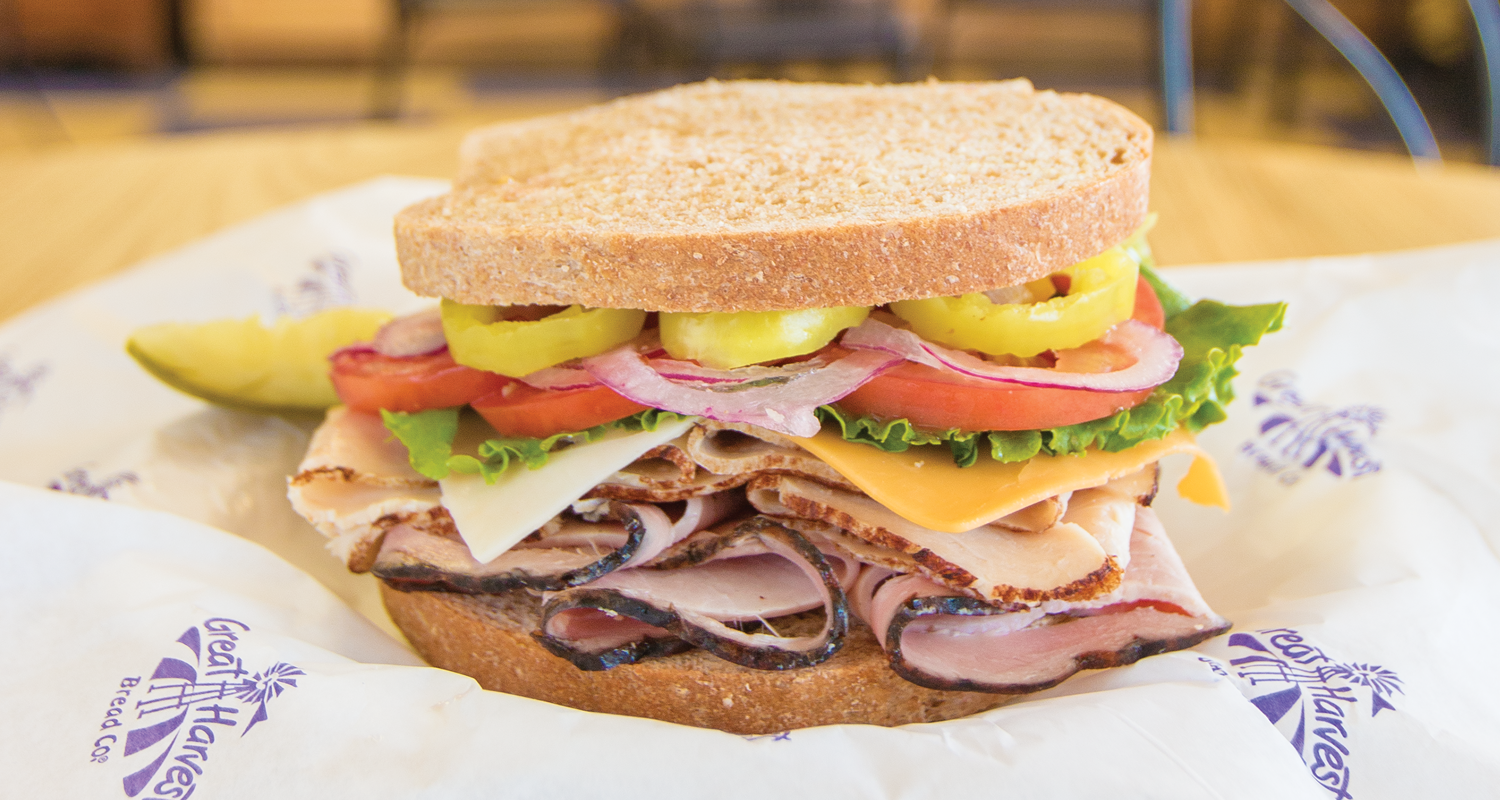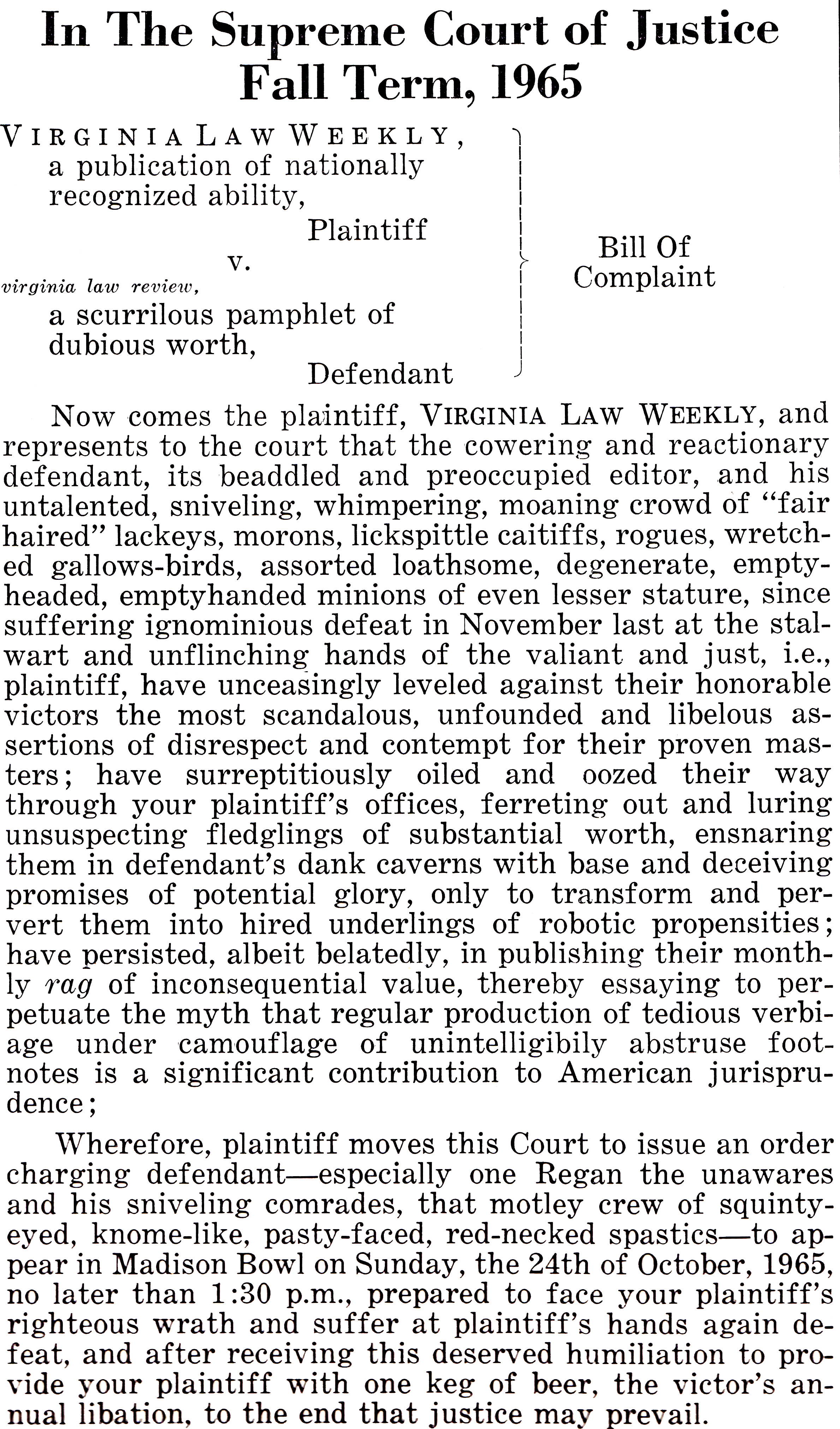Hot Bench: Clayton Bailey '18
1. What are you most excited for during your summer?
Charlottesville during the summer is just delightful. I’ll spend some time studying for the bar, drink some wine, and hit all the classics I won’t see again until I come back down to “recruit,” “go to alumni events,” or “do other things that I’m actually going to do and don’t belong in quotation marks.”
2. What is your favorite word?
The abbreviated version of “casual” that you can’t spell in a way that seems right.
3. Where did you grow up?
Kentucky . . . not many people know that.
4. What’s your favorite hobby to avoid the stress of law school?
Re-watching The West Wing. Still great.
5. Where is your favorite place to vacation?
Ireland. The ground is never dry but the people are hilarious. There’s a lot of really cutting sarcasm and everyone looks vaguely like my grandpa. Great craic!
6. What’s something you wish you’d known about law school before coming to UVa Law?
The most accurate part of Legally Blonde is the scene where Elle gets asked a question, she answers it in a dumb way, and everyone laughs. No one means it in a mean way, but pay attention—you’ll see it.
7. What did you have for breakfast this morning?
Scrambled eggs . . . is this a question about legal realism? We get it, this school really leans toward the rules side of the rules-standards debate.
8. If you could live anywhere, where would it be?
Wait, there are options outside of New York and D.C.?
9. What’s your least favorite sound?
I restarted playing Candy Crush a couple of weeks ago for some reason, and the music is starting to seep into my dreams.
10. What’s the best gift you’ve ever received?
The gift of friendship. And I receive it every day. That’s what UVa Law is all about. #UVALawDay #Retweet #Collegiality
11. Backstreet Boys or *NSYNC?
*NSYNC. My birthday is in May, so “It’s Gonna Be Me” is sort of a personal anthem.
12. If you could make one rule that everyone had to follow, what would it be?
When attending karaoke, “Piano Man” is best left until the end of the night.
13. What’s your favorite food?
There’s this little sandwich place in Lexington called Dad’s Favorites, that has the best cheese spreads. I don’t know if it’s my favorite, but I do miss it dearly.
14. If you won the lottery, what would you do with it?
Fund a PAC to advocate for a less regressive government revenue stream. Also, buy a jet ski.
15. If you had Matrix-like learning, what would you learn?
Caleb Nelson’s casebook. I’m pretty sure it secretly contains every viewpoint on every legal issue.
16. If you could be in the winter Olympics, which sport would you compete in?
Last year, I walked from Ivy to the Pavilion in like a foot of snow, so I think I’m pretty much qualified to compete in any of them.
----
clb5jc@virginia.edu



















